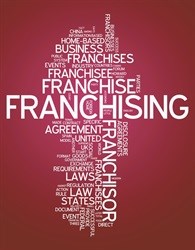
It is said that franchising increases a business' success rate by 80% or more as it is cemented on the learning and triumphs of other business pioneers, making it an ideal option for the entrepreneur looking for a smart investment.
To initiate the process, here are some frequently asked questions to set potential franchisees on the right track:
Franchising is a business concept that it used to distribute products or services. There are two main parties involved in a franchise system: (1) the franchisor (or franchise owner), who lends his trademark or trade name and a business system to the franchisee at a fee; and (2) the franchisee, who pays a royalty and often an initial fee for the right to do business under the franchisor's name and system.
Essentially, a franchisee forms part of the franchise by buying into the brand and agreeing to conduct their business as based on the regulations and requirements as set forth by the franchisor. The franchisee pays the needed fees and in return gains the use of a trademark, ongoing support from the franchisor, and the right to use the franchisor's system of operations. The type of franchise that is bought into depends on the vision of the business owner and can vary from a jewellery store to a car battery franchise to a fast food outlet such as The Fish & Chip Co.
It all starts with research. There are many online sources available that share information on franchises, however, the ideal place to start will be with a franchising body, such as the Franchising Association of Southern Africa (FASA) who are able to share information on franchises who are registered with them. Once a franchise has been identified you should contact the companies directly, and "shop wisely" to ensure your investment is not lost.
Are there any negative aspects to franchising?
The biggest drawback could be a loss of some independence. In exchange for the security, training and support from a franchised trademark, a franchisee does give up some of their individuality, as they need to run the business according to a set standard as set forth by the franchisor. If you are a person who likes to make most decisions on your own or to chart the course of your business alone, a franchise may not be right for you. In addition, as in any business, success is never achieved without hard work and sacrifice, and franchising will require a 100% commitment. The franchisee needs to understand that without their constant input and involvement, the business will not work. A great deal of time and effort will need to be invested, which should never be considered as a draw back in business in any case.
It is imperative that potential franchisees have a full knowledge of what they are investing in, as capital is not the only requirement. Essentially, entrepreneurs are investing a number of hard working years into a business that will need to be built on an ongoing basis. Being 100% informed and having a complete understanding of what is expected and what is being offered is crucial to business success.